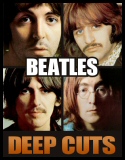Interview with David Immergluck of Counting Crows
Music Home / Entertainment Channel / Bullz-Eye Home
Click here for a review of Counting Crows latest album
With four full-length releases in the past 10 years, Counting Crows have become a fixture on the pop/rock scene. Currently they are about to release a greatest hits compilation, and I got to talk to lead guitarist David Immergluck about what it’s like to be part of such a great band.
Mike Farley: So how long have you been with Counting Crows?
David Immergluck: My history with the band is very bizarre. I was there very early on; I recorded the first record with them. Then I left and played with John Hiatt for about four and a half years. I came back in 1998 and have been pretty solidly around since.
MF: So you were around for the first record, and the third and fourth?
DI: I’ve played on all of them to varying degrees. Recovering the Satellites is the one I played on the least. I played on one song on that, and it was recorded way before the rest of the record. I came in and started recording with them again pretty heavily on This Desert Life.
MF: So tell me about the new Greatest Hits record and what are some of the highlights?
DI: It’s definitely got all the songs that Counting Crows is most known for such as “Mr. Jones,” “Long December,” “Big Yellow Taxi.” And then various favorite songs from all the records like “Hangin’ Around,” “Round Here,” “Mrs. Potter’s Lullaby.” And there are two new songs, one of ours and we covered a Grateful Dead song, “Friend of the Devil,” which I’m really happy with. I’m sort of going through a renaissance of loving the Grateful Dead again.
MF: So how does the songwriting process work for you guys?
DI: It works in a lot of different ways. Adam (Duritz, lead vocalist) writes the bulk of the material. For the last record, Hard Candy, Adam, Charlie (Gillingham, keyboard player) and I holed up in Adam’s basement and did a bunch of demos. We had writing sessions for a couple weeks, and Dan joined us near the end of it. We got the songs “Miami” and “Richard Manuel is Dead” out of that, and we had a whole slew of other songs too that we attempted to record but every day Adam would come in with a new song.
MF: He’s pretty prolific, huh?
DI: Well, he’s a bizarre writer. He’ll go through a year of doing nothing, and then when it’s time to make a record the songs start flowing out of him. He doesn’t understand it, nor do we, but that’s generally how it happens.
MF: I wouldn’t fight it.
DI: No, and there’s no rule about how to make a song. There’s so many ways, as history has proven.
MF: How many songs do you guys typically write for one record before you narrow it down?
DI: Maybe 18 songs but we whittle it down to 11 or 13.
MF: I’ve heard stories of 30 or 40 or 50 and getting it down to eight or nine.
DI: That actually sounds like a good idea. I think, and we’re guilty of this too, that CDs are way too long these days. And I think it’s a function of the price of the CD that artists and record companies think they have to put all this extra stuff on there so it looks like it’s worth the ridiculous price. I will say this, the new Strokes record clocks in at like 35 minutes. That’s pretty cool and that’s how long it should be. That’s how long the great records are. The whole science of sequencing a record in a dramatic listenable chunk has been lost with CDs. The science was doing a set that lasted like 18 minutes that had a rise and a fall to it, and there were certain songs that you remember as being the last song on side one or the first song on side two. I remember thinking about this with the Black Crowes’ The Southern Harmony and Musical Companion. That was when I first was like, “These records are long.” I’d put it in and press play, get seven songs in, then go wander somewhere. It took me a year to realize there were more cool songs on the CD.
MF: Tell me about a typical day on the road for you guys.
DI: It’s really weird right now, we’re doing this press stuff and not really in touring mode, which is a whole different rhythm. Right now I was in New York last week, we flew back to L.A., back to New York yesterday. We’re going back to L.A. next week, and then back to New York after that. It’s all like TV and Internet, live streaming filming and stuff like that. Right now, I woke up at 1 p.m., read part of the David Crosby autobiography, went down and had a pot of tea. I’m going to go to Rollingstone.com later this afternoon and do some filming. But I wouldn’t classify that as a typical day on the road for Counting Crows. Typically we would get to sound check about 4 p.m., try to eat three hours before we hit the stage so we have time to digest. And then get ready for the show and frolic afterwards.
MF: Our Website is geared toward guys.
DI: Laughs. So there are a lot of semi-clad women?
MF: Exactly.
DI: Excellent!
MF: So one of the things our readers like to know is, what are the groupies like at your level?
DI: Well, reading the David Crosby autobiography right now, it’s a lot different than it was in the 1970s, I’ll tell you that. But Counting Crows are generally healthy warm-blooded males and we definitely appreciate women. And there are some great girls out there, I will say that. But there’s a myth that being in a rock band brings you girls. Until you have a crew to deal with all your gear you don’t really notice it because you spend your whole day getting your gear down to the dive you’re playing in. You play for two hours and make eye contact with women in the audience but then you’ve got to spend another hour and a half to two hours breaking your gear down, worrying about it, making sure it’s not getting stolen. And by the time that’s all done, some lucky dude in the audience has all the girls. But of course, that’s not where Counting Crows is at right now…and I don’t want to incriminate anyone in the band.
MF: What is the strangest thing you guys have ever asked for on a rider?
DI: I think Matt (Malley, bass player) once demanded, and I may be wrong about this because it wasn’t when I was touring with the band, but he was demanding some weird concoction of dried basil and melted butter that he was using to treat some sort of spiritual anxiety. I think that was pretty bizarre. Other than that we always have tons of Gatorade to counteract the Tequila.
MF: What song do you like playing the most, and what song are you tired of playing?
DI: Well, that changes from gig to gig. I’m not really tired of playing any of the songs. I generally really like our music. I like “Rain King” and “Miami” a lot. I like to play “Good Time.” There are a lot of them. We just whipped out some songs from Recovering the Satellites that I play pedal steel on, and I forgot how much I like to play it.
MF: What is your favorite venue to play and why?
DI: There are a couple of them. Certainly the Warfield in San Francisco has a special place in my heart, because as we were growing up it was the venue to aspire to. Now we go there and I’ve played there with a lot of different bands, opening and headlining, and it’s just “home.” We’re about to do a six-night stand there, which I’m really looking forward to. There’s a place in England called the Brixton Academy. That room is such a rock & roll room, there’s something about it. A lot of great shows have happened there, and there’s just something about the way the room’s designed and the way the crowd is when they’re into it. The Point in Dublin is another emotional place for us to play.
MF: It’s got to be really cool to get to go overseas like that.
DI: Oh, it’s fantastic. It’s one of the great things about the gig. I love to travel, and go to Europe. We’re doing really well there right now, so it’s a pleasure. Australia in general is fabulous too.
MF: Who was your biggest influence as a player?
DI: It’s hard to say. Probably Jimi Hendrix. I remember being stoned listening to him when I was a teenager. Hallucinating that I knew what he was doing -- lying there in sort of a comatose state imagining playing what he was playing. You can’t really play electric guitar without facing what he did. And then Jerry Garcia, despite the fashion statement, had an incredibly panoramic vision of music -- just a beautiful, soulful player. Peter Green is a big influence on me. As far as the band, obviously there’s a big Van Morrison/Bob Dylan/The Band influence in our music. And Springsteen, among other things.
MF: And what’s in your CD player right now?
DI: The new Robert Wyatt record, Cuckooland, is really good. I remember turning the CD player off before I left my apartment, and our drummer was there and I was freaking him out by what I had playing, some kind of punk thing. I have the Grateful Dead, The Closing of Winterland, on the DVD player at home too.
MF: If you have a chance, check out our site, www.bullz-eye.com, and let me know who your favorite girl is.
DI: My latest obsession is Scarlett Johansson, I’ll tell you that.
Later, David e-mailed me and here was his response:
After exhaustive research, and utterly painful deliberation, I think I’ve gotta go with Betcee (October 2003) as my favorite super-fox up on your site, although Mia (November 2003) seems like quite the party as well. Hook a kid up, wouldya?
Thanks for the interview yesterday. After my jet-lag haze wore off, I recalled that the other CD currently in heavy rotation on my player which I couldn’t seem to identify for you was Earthquake Glue by Guided By Voices. Also, somehow I failed to cite Led Zeppelin and Miles Davis as huge musical influences on me, but you caught me before the caffeine kicked in, so what can I say?
MF: If you could write an episode of MTV’s “Punk’d” for Adam, how would you plot it out?
DI: I can’t incriminate anyone, sorry. Laughs. I’ve already plotted that one out by being in a band with him.
MF: Anything else you want to add or plug?
DI: I can’t think of anything off the top of my head, but thanks again for the interview.
Check out more on Counting Crows at www.countingcrows.com.
Other Counting Crows reviews:
August
and Everything After (1993)
Hard Candy(2002)






